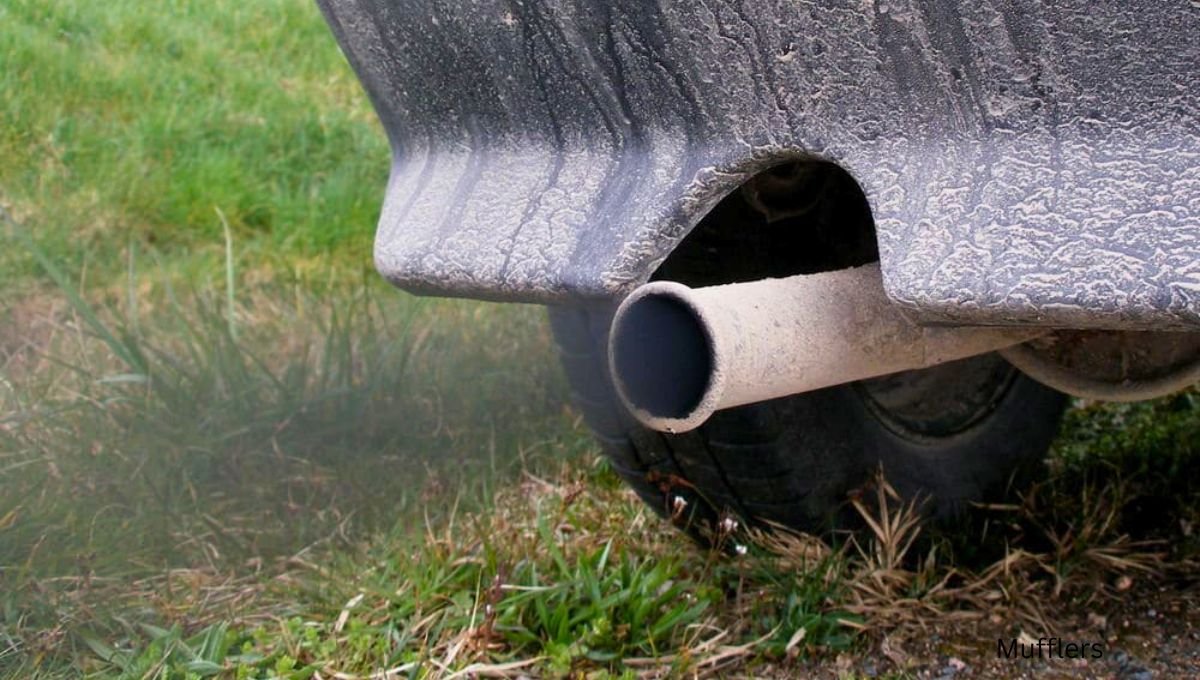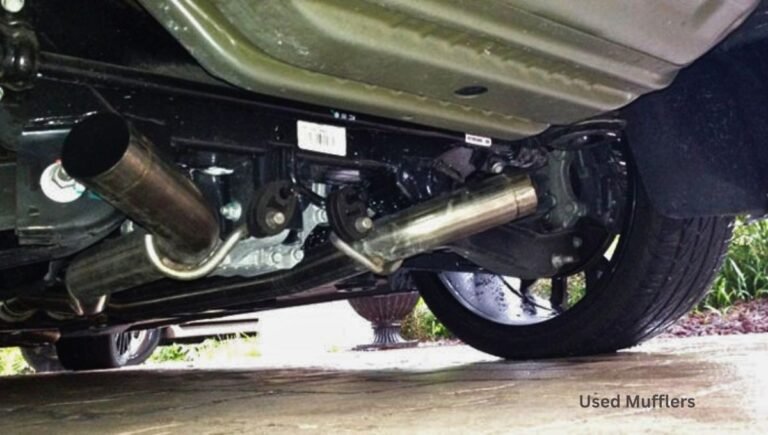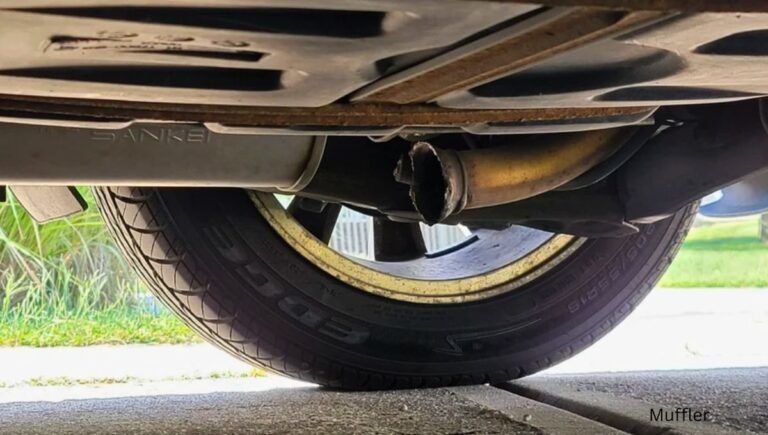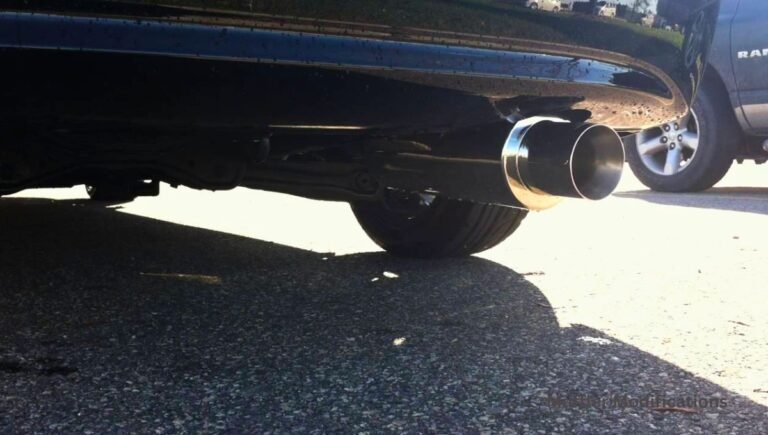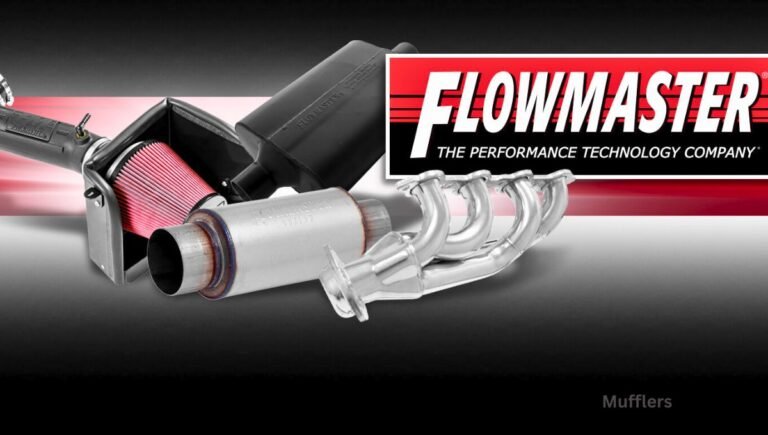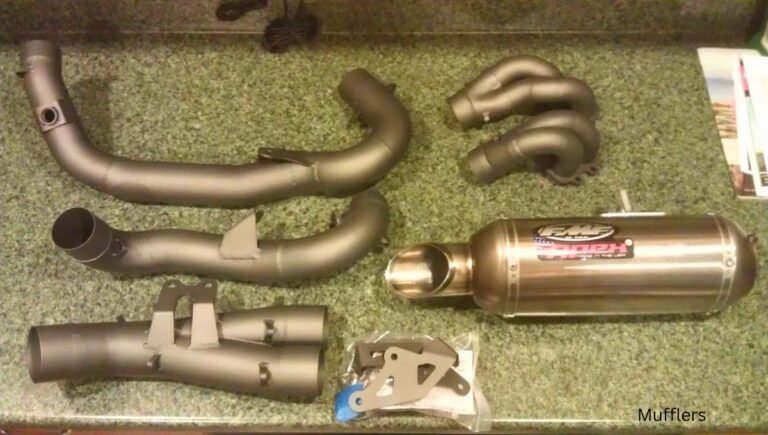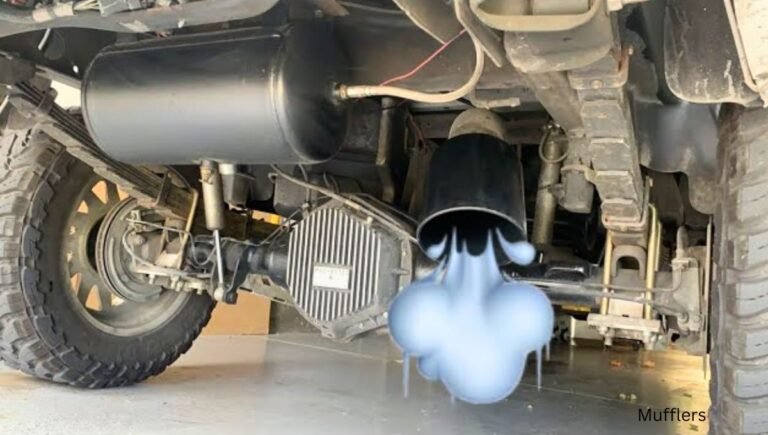Can a Bad Muffler Trigger Your Check Engine Alert?
Yes, a bad muffler can trigger the check engine alert to come on. A malfunctioning muffler can lead to exhaust leaks and cause the oxygen sensor to detect improper air-fuel mixture, triggering the check engine light.
This issue should be addressed promptly to prevent further damage to the vehicle and ensure proper engine performance. When the muffler fails to properly contain and direct exhaust gases, it can result in increased emissions and potential damage to the engine.
Understanding the potential impact of a bad muffler on the check engine light can help car owners recognize the importance of addressing muffler issues promptly. In the following sections, we will explore the connection between a malfunctioning muffler and the check engine light, as well as the potential consequences of ignoring this issue.
The Role Of A Muffler In Vehicle Performance
A malfunctioning muffler can trigger the check engine light due to exhaust system issues. The muffler plays a crucial role in reducing noise and ensuring engine performance. If the muffler is faulty, it can impact engine efficiency and trigger warning lights.

Function Of The Muffler
The muffler is an integral component of a vehicle’s exhaust system, responsible for reducing the noise produced by the engine. However, the muffler has additional functions that impact the overall performance of the vehicle.
It works by directing exhaust gases through a series of chambers, where sound waves are absorbed and canceled out by the muffler’s acoustic material. This process ensures that the engine’s noise level is reduced to acceptable levels, while also providing backpressure that improves engine performance.
Impact On Engine Efficiency
A bad muffler can cause a plethora of problems, including a reduced engine efficiency that can trigger the check engine light. A malfunctioning muffler can lead to a buildup of backpressure in the engine, causing it to work harder than necessary.
This added strain can negatively impact the engine’s efficiency, leading to lower fuel economy and increased emissions. A faulty muffler can also cause the engine to overheat, leading to further damage and potential engine failure. Therefore, it’s essential to ensure that your vehicle’s muffler is in top condition to maintain optimal engine performance and avoid costly repairs.
In conclusion, the muffler plays a crucial role in the overall performance of your vehicle. A bad muffler can cause a reduction in engine efficiency that can trigger the check engine light. Regular maintenance and inspection of the muffler can help prevent these issues and ensure that your vehicle is running smoothly and efficiently.
Understanding The Check Engine Light
A bad muffler can trigger the check engine light due to issues with the exhaust system. When exhaust components malfunction, it can lead to sensor readings outside normal parameters, prompting the warning light to illuminate. Understanding this connection can help diagnose and address the underlying problem effectively.
The check engine light, also known as the malfunction indicator lamp (MIL), is a crucial feature in modern vehicles. It serves as an alert system, indicating potential issues with the vehicle’s engine or emissions control system. When the check engine light illuminates, it’s essential to address the underlying problem promptly to prevent further damage and ensure optimal vehicle performance.
Common Triggers For The Alert
The check engine light can be triggered by various issues, including faulty oxygen sensor, loose gas cap, failing catalytic converter, damaged spark plugs, or a bad muffler. Each of these issues can impact the vehicle’s performance and emissions, leading to the illumination of the check engine light.
Diagnostic Tools And Codes
When the check engine light comes on, using diagnostic tools such as an OBD-II scanner can help retrieve specific trouble codes from the vehicle’s computer. These codes provide valuable insights into the nature of the problem, allowing for targeted repairs.
For instance, codes such as P0420 (catalytic converter efficiency below threshold) or P0300 (random/multiple cylinder misfire detected) can pinpoint the exact issue, enabling accurate diagnosis and resolution.
Connection Between Exhaust System And Engine Sensors
The exhaust system and engine sensors are interdependent, and a problem in one can cause issues in the other. The muffler, which is a part of the exhaust system, can cause the check engine light to come on if it is in bad condition. Let’s take a closer look at the connection between the exhaust system and engine sensors to understand how a bad muffler can cause the check engine light to come on.
Oxygen Sensor Functionality
The oxygen sensor is a crucial component of the engine’s emission control system. It is located in the exhaust system and measures the amount of oxygen in the exhaust gases. The engine control module (ECM) uses this data to adjust the air-fuel mixture to ensure optimal engine performance and fuel efficiency. If the oxygen sensor detects a high level of oxygen in the exhaust gases, it indicates a lean air-fuel mixture, while a low level indicates a rich air-fuel mixture.
How Exhaust Leaks Affect Readings
Exhaust leaks can cause inaccurate readings from the oxygen sensor. The sensor can detect the extra oxygen entering the exhaust system through the leak, which can cause the ECM to adjust the air-fuel mixture incorrectly. This can lead to a decrease in engine performance and fuel efficiency, as well as an increase in emissions. In some cases, an exhaust leak can also cause the check engine light to come on.
If the muffler is in bad condition and has holes or cracks, it can cause exhaust leaks and affect the readings from the oxygen sensor. This can cause the check engine light to come on and indicate a problem with the emission control system. It is essential to get the muffler checked and replaced if necessary to avoid further damage to the exhaust system and engine sensors.
Symptoms Of A Faulty Muffler
A faulty muffler can cause the check engine light to come on. Symptoms of a bad muffler include loud noises, reduced fuel efficiency, and a foul smell. It’s important to address muffler issues promptly to avoid further damage to the vehicle.
Audible Signs Of Damage
If you suspect that your muffler is causing your check engine light to come on, there are a few audible signs to watch out for. A faulty muffler can produce unusual sounds that indicate damage or wear. These sounds can include:
- Rattling or banging noises: A loose or damaged muffler may produce rattling or banging sounds, especially when you accelerate or drive over bumps.
- Hissing or sizzling sounds: If you hear a hissing or sizzling noise coming from your muffler, it could be a sign of a leak or hole in the exhaust system.
- Loud rumbling or roaring: A muffler that is damaged or has deteriorated over time can result in an excessively loud rumbling or roaring noise.
It is important to pay attention to these sounds and have your muffler inspected if you notice any abnormalities. Ignoring these audible signs could lead to further damage to your vehicle’s exhaust system and potentially trigger the check engine light.
Physical Signs Of Wear
In addition to unusual sounds, there are also physical signs that may indicate a faulty muffler. These signs include:
- Rust or corrosion: A muffler that shows signs of rust or corrosion may be compromised and prone to leaks or cracks.
- Holes or visible damage: Inspect your muffler for any visible holes, cracks, or other damage. These physical defects can affect the performance of the muffler and trigger the check engine light.
- Excessive smoke or soot: If you notice black smoke or excessive soot coming from your vehicle’s exhaust pipe, it could be a sign of a malfunctioning muffler.
- Unusual vibrations: A faulty muffler may cause your vehicle to vibrate more than usual, especially when idling or accelerating.
By keeping an eye out for these physical signs of wear, you can identify potential issues with your muffler before they escalate and cause your check engine light to illuminate. Regular maintenance and inspections can help prevent further damage and ensure your vehicle’s exhaust system is functioning properly.
Remember, a bad muffler can indeed cause the check engine light to come on. If you experience any of these symptoms or suspect a problem with your muffler, it is crucial to have it checked by a professional mechanic to avoid potential damage to your vehicle’s engine and exhaust system.
Troubleshooting The Check Engine Light
When the check engine light comes on in your vehicle, it can be a cause for concern. This warning light is connected to the onboard diagnostic (OBD) system of your car, which monitors various components and systems to ensure they are functioning properly.

One possible culprit for the check engine light to illuminate is a bad muffler. While it may seem unlikely, a faulty muffler can trigger the check engine light due to its impact on the overall exhaust system. In this section, we will explore the steps for initial diagnosis and when it’s necessary to consult a professional.
Steps For Initial Diagnosis
If you suspect that a bad muffler is the reason behind your check engine light, you can perform a few initial diagnostic steps to confirm the issue. Here’s what you can do:
- Inspect the muffler visually for any signs of damage, such as rust, holes, or leaks.
- Check for unusual noises coming from the muffler, such as rattling or hissing sounds.
- Examine the exhaust pipe for any blockages or obstructions that could be affecting the muffler’s performance.
- Use an OBD scanner to retrieve the specific error code associated with the check engine light. This code can provide more insight into the exact problem with your vehicle.
- If the error code indicates a potential issue with the muffler or exhaust system, it’s recommended to have a professional inspection for a more accurate diagnosis.
When To Consult A Professional
While you can perform the initial diagnosis yourself, there are instances when it’s best to consult a professional mechanic. Consider the following situations:
- If you lack experience or knowledge in automotive repairs, it’s safer to seek professional assistance to avoid further damage.
- When the check engine light is accompanied by other symptoms, such as decreased performance, excessive smoke, or a strong smell of exhaust, it indicates a more serious issue that requires professional attention.
- If the initial diagnosis suggests a problem with the muffler or exhaust system, a professional can conduct a thorough inspection and provide an accurate assessment of the situation.
- Modern vehicles have complex exhaust systems that may involve sensors, catalytic converters, or other components. A professional mechanic has the expertise and specialized tools to diagnose and repair these intricate systems.
Remember, the check engine light can be triggered by various factors, and a bad muffler is just one possibility. It’s essential to consider other potential causes and seek professional help if necessary. By addressing the issue promptly, you can ensure the optimal performance and longevity of your vehicle.
Effects Of Driving With A Bad Muffler
Driving with a bad muffler can have a range of effects on your vehicle’s performance and overall condition. The impact of a malfunctioning muffler goes beyond the annoying noise it generates. Let’s take a closer look at the short-term performance issues and long-term damage risks associated with driving a vehicle with a bad muffler.
Short-term Performance Issues
A bad muffler can lead to increased engine noise, reduced fuel efficiency, and compromised exhaust system performance. It can also result in vibrations and rattling noises, making for a less comfortable driving experience. Moreover, a malfunctioning muffler can trigger the check engine light due to irregular exhaust flow and improper emission control.
Long-term Damage Risks
Continued driving with a bad muffler can lead to corrosion of the exhaust system and potentially damage the catalytic converter. This can result in costly repairs and compromised engine performance. Additionally, the excessive noise and vibration from a bad muffler can affect other vehicle components, leading to premature wear and tear.
Repair Or Replace: Muffler Maintenance Tips
A malfunctioning muffler can trigger the check engine light. If your muffler is in bad shape, it’s important to address the issue promptly. Learn some maintenance tips to help you decide whether to repair or replace your muffler.
Diy Muffler Inspection Guide
Choosing Between Repair And Replacement
Mufflers play a crucial role in your vehicle’s performance and emissions control. A bad muffler can trigger the check engine light. Regular maintenance can prevent this issue.
Inspect your muffler for rust, holes, and damage. Listen for unusual noises while driving. Consider repair if the issue is minor, but opt for replacement for severe damage.
When deciding between repair and replacement, consider factors like the extent of damage and cost. Repairs can be cost-effective for minor issues, but a severely damaged muffler may require replacement.
Regularly inspecting and maintaining your muffler can prevent issues that trigger the check engine light. Choose repair or replacement wisely to ensure your vehicle runs smoothly.
Preventative Measures For Muffler Care
A malfunctioning muffler can trigger the check engine light, so it’s important to take preventative measures for muffler care. Regular inspection, maintenance, and prompt repairs can prevent potential issues and keep your engine running smoothly.
Routine Checks And Balancing
Maintain your muffler by checking for rust or damage regularly.
Ensure the muffler is securely attached and not hanging loose.
Importance Of Professional Servicing
Professional servicing can detect issues early and prevent costly repairs.
Experts can provide thorough inspections and ensure proper muffler function.
Conclusion
Ultimately, a malfunctioning muffler can trigger the check engine light. Addressing muffler issues promptly is vital to prevent further engine complications. Regular maintenance and immediate repairs can help avoid costly repairs in the future. Stay proactive in caring for your vehicle to ensure smooth driving experiences.

